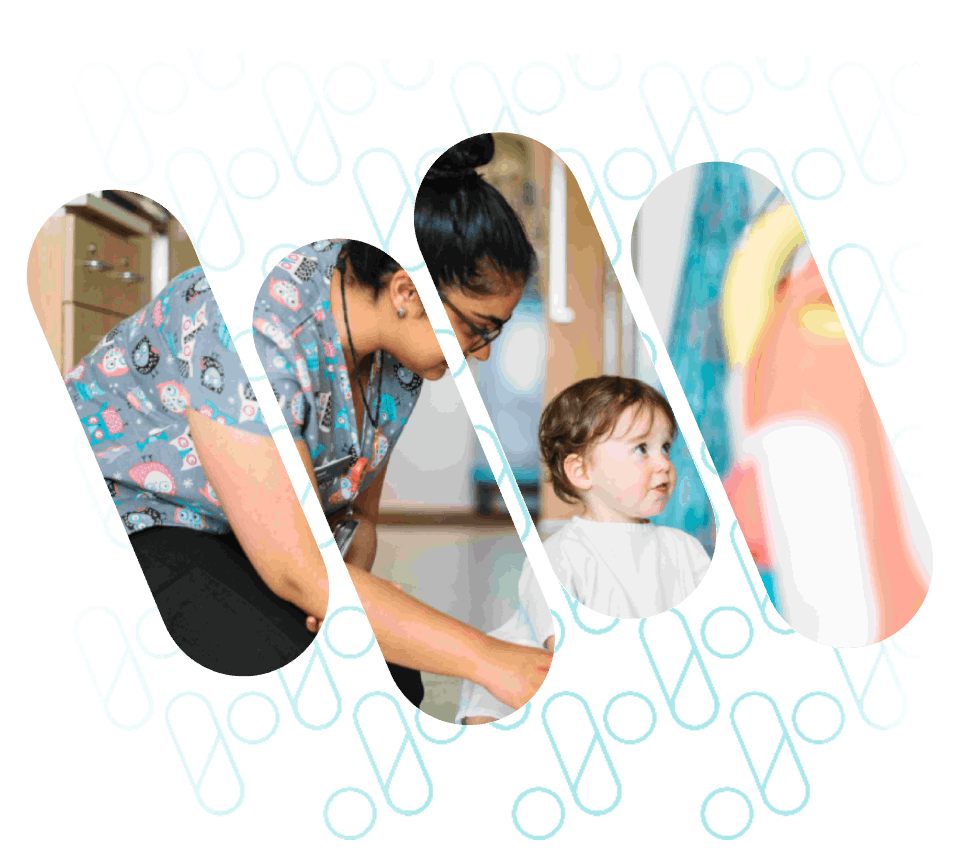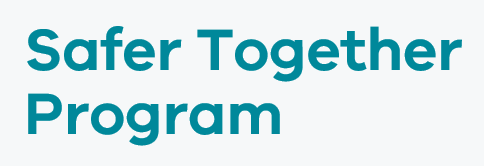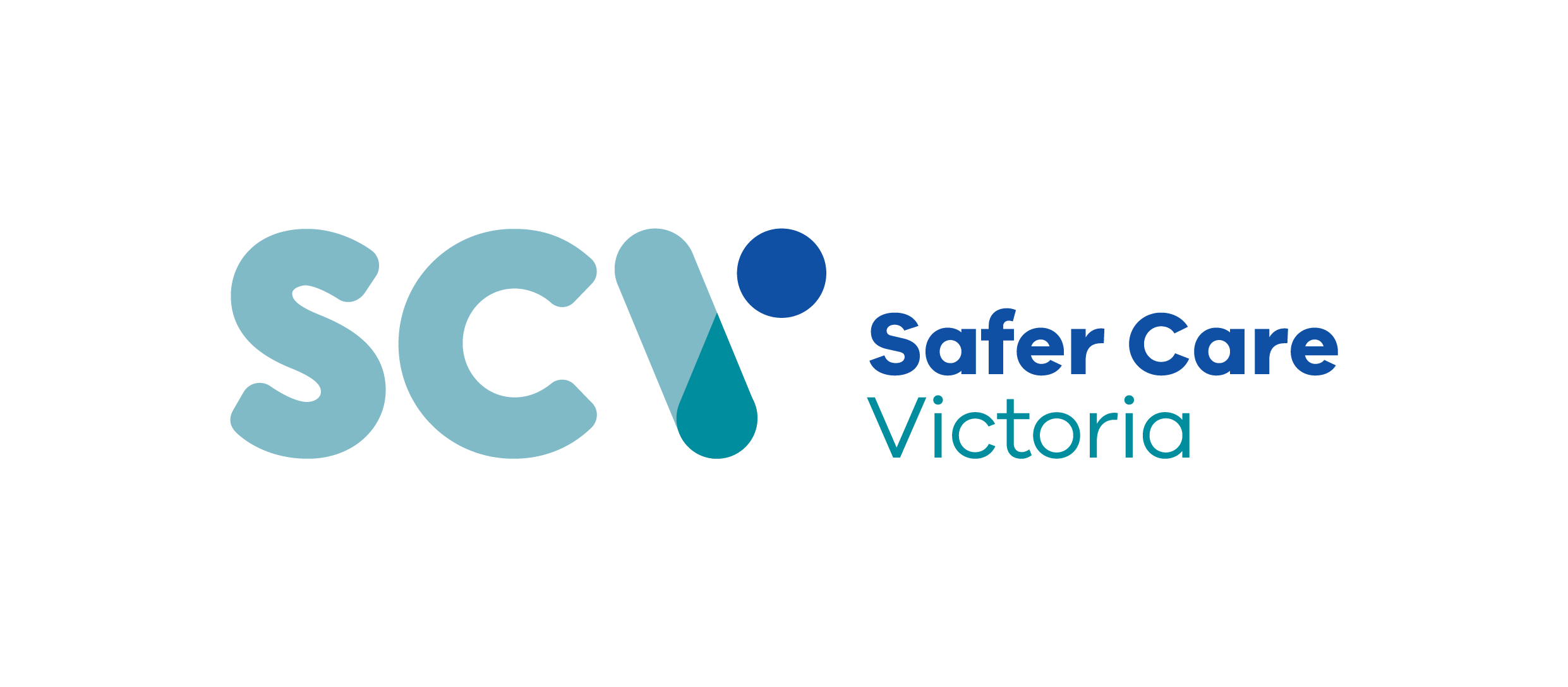About the project
The Safer Care for Kids: ViCTOR project aims to reduce variation in how health services recognise and respond to deterioration in children by:
- ensuring consistent use of Victorian children's tool for observation and response (ViCTOR )
- enhancing involvement of families and caregivers in recognising and responding to their child's deterioration.
Victorian Children’s Tool for Observation and Response (ViCTOR) is a set of evidence-based tools to help health services detect and respond to patient deterioration.
Objectives
- Partner with health services to meet the legislative mandate for usage of the ViCTOR chart wherever children and young people have their vital signs monitored and recorded
- Improve reliability of ViCTOR chart usage to enhance recognition and response to deterioration of children
- Integrate families and carers in the recognition and response to deterioration process, as experts in their child
- Develop monitoring process to support statewide quality and safety oversight of ViCTOR chart usage
- Reduce variation in care
Background
In 2021–22 Victoria recorded a 53% increase in reported paediatric sentinel event notifications from the year prior. It was identified that half of these events were due to delayed or missed recognition of deterioration.
ViCTOR charts have been recognised as a beneficial track and trigger tool to help clinicians recognise and respond to the deterioration of children. It is now a legislative mandate to use ViCTOR charts wherever children and young people have vital signs recorded. However, there is variation in the use of ViCTOR charts across Victoria and no method of monitoring use in health services treating children.
ViCTOR charts currently have escalation pathways for concerned family members, but there are many barriers activation of this pathway by family members and caregivers. Evidence suggests that the addition of a proactive family/carer assessment for concern (e.g. Are you worried you child is getting worse?) is effective in identifying children who are more likely to be admitted to hospital, intensive care and have longer lengths of stay. A concerned family member or caregiver is a better indicator of a negative outcome than any other vital sign.
How to get involved
For more information, please contact victor@safercare.vic.gov.au.
Solution design
SCV has partnered with clinicians, consumers and health services to pilot and test the most effective system changes to:
- improve the reliability of ViCTOR chart use
- integrate family and carer voice /concern for deterioration
- improve reliability of timely and appropriate response to deterioration.
Results from the pilot will help inform how to scale and spread appropriate use of ViCTOR charts statewide, including systems for better monitoring.
Results from the pilot
The ViCTOR pilot project concluded in July 2025.
Evaluation findings from participating health services show:
- age-appropriate ViCTOR chart use improved from 74% at the start of the pilot to 99%
- clinical incidents related to deterioration dropped by 30% compared to the previous year
- incidents of severity ratings of 1 and 2 nearly halved
- only 1.7% of families/carers voiced concerns when asked – despite early worries that asking might lead to unnecessary responses and increased clinician workload, this was not the case
- where concern was raised, clinical management changed in 50% of cases, enabling early detection of paediatric deterioration.
All Victorian health services caring for paediatric patients have either adopted or are actively progressing towards implementation of the refined ViCTOR charts. We will continue to support health care services as they meet the mandate and transition to the refined ViCTOR charts.
"Every child attending our health service will have a consistent approach to monitoring and recording their vital signs using the ViCTOR chart and abnormal vitals escalated appropriately."
–Health service clinician
Implementation guide
Implementation Guide and FAQs – Refined ViCTOR Chart
These resources provide practical guidance on the implementation of the refined Victorian Children’s Tool for Observation and Response (ViCTOR) chart.
Clinical conversations
Clinical conversation – Safer Care 4 Kids: ViCTOR Pilot Project
This clinical conversation provides an overview of the Safer Care for Kids: ViCTOR pilot project findings. The session is for health service executives, clinicians, and quality officers from across Victoria.
Clinical conversation – Safer Care 4 Kids: Refined ViCTOR chart implementation
This clinical conversation provides a practical guide to implementation of the refined ViCTOR chart. The session is for health service executives, clinicians, and quality officers from across Victoria.
Participating services
The project commenced in November 2024, with the following health services, representing a variety of clinical areas from metropolitan, regional and rural health services:
- Barwon Health
- Bairnsdale Regional Health
- Cabrini Health
- Grampians Health
- Heathcote Health
- Peninsula Health
- Latrobe Regional Health
- Northeast Health Wangaratta.
Implementation funds were provided to the 8 participating health services.
More information
Work is currently underway with the Royal Children’s Hospital Melbourne to update these resources and publish the refined ViCTOR chart online.
ViCTOR education hub (The Royal Children's Hospital Melbourne
Urgent Concern Helpline
Find out about other Safer Care for Kids initiatives.
Priority area
This project supports our broader effort to reduce avoidable harm and unnecessary variation in healthcare.



